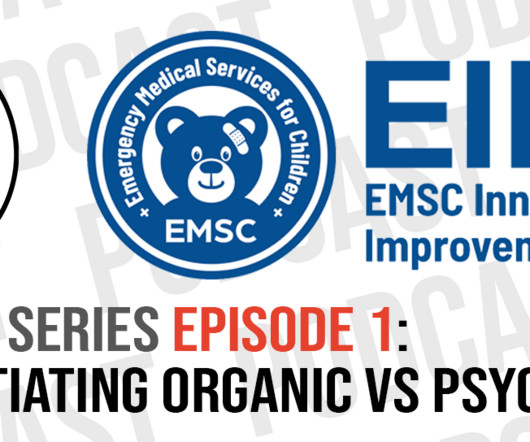Agitation Podcast Series Episode 1: Differentiating organic versus psychiatric causes of agitation and altered mental status
PEMBlog
MAY 17, 2023
Most children who present to Pediatric Emergency Departments these days with mental health concerns – including agitation – have a known psychiatric problem or diagnosis. Furthermore, the connection between physical and functional symptoms is inextricably linked in many patients. Government.












Let's personalize your content